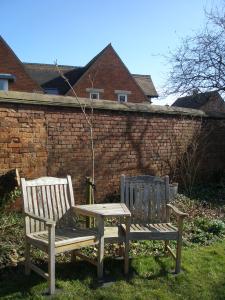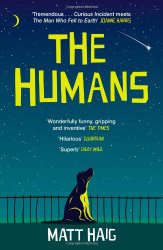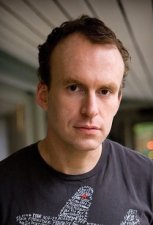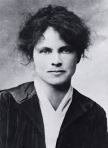This is the last book by Goran Petrovic translated into Spanish, and of course I have to read it absolutely. The name of this blog is also the name of one of Goran Petrovic’s stories, and one of the books I most enjoy and admire.
Uranija Cinema is the meeting place for thirty different people on Sundays, when to see a film is one of the only entertainment that they can find in a small Serbian’s village.
The story brings us into the lives of this group of people during the years of the XX century in Serbia, and we learnt about the aspirations and contradictions, representing of the Serbian society at this time.
The melancholy again accompanies the life of the characters of Goran Petrovic’s novels.
The whole story gives you the feeling of old-fashioned life, together with its eccentric characters.
The beginning of the book serves as a diversion from the main story, being a cluster of short stories.
The story starts with the movements of a strange and obsessive shoemaker who get this absurd opportunity that makes him work hard but get a lot of money to build his dream: the Jugoslavia Hotel. But the business is not like in his dreams, and finally becomes a nightmare, that makes him abandon it. The Jugoslavia Hotel finally becomes the place where this bunch of people has this cinema. The cinema, being the place where we are going to meet them.
Don’t expect a great story, as it is only about ordinary people’s lives, but full of great stories, like those of you or me.
This time the sentences have been translated by me from Spanish. I hope that I don’t lose the sense.
“The participants in the actions didn’t care much the gain omitted as the lose their own senses of greatness. A trader does not like a dime ends in someone else’s pocket.”
“… The scoundrels of the place, Z and Z …” I cannot forget those other rogues: Zipy y Zape.
“Some of the guests came to sing and others to hang themselves outside of their houses. In some of the rooms, the guests got drunk because of the loss of freedom and others because they didn´t know what to do with the freedom that they had…”
“The words ‘freedom’, ‘revolution’, ‘strike’, ‘anarchy’ were banned. Other words were not expelled but explained in a somewhat different way. The Osmanli Dictionary, published in 1905, said that the definition of the word ‘democracy’ was: exotic bird of America. “
And speaking about how to change the meaning of the words.
“I will instruct you, the tyranny is always bragging, she struts and keeps quiet. Democracy, however, is a small bird, that you do not see, but when he starts talking …!”
“The Serbian. It is an excellent language to speak about something all what you want, but only when everything has finished, when it is impossible to do anything else.”
“A woman is a woman, but a driving licence is a driving licence. You must not put men in a situation where they have to make difficult decisions.”
“Also, because then that ‘beyond’ of them seemed more bearable, especially after being convinced that he was here worse.”
“… the bombs fall within the limits of the allowed error of approximately a few hundred lives.”
How can I read something like this and that my first thought is not of repulse? Someone sold us the idea of secondary casualties and we or at least I, have absorbed and accept the concept as something normal.
Goran Petrovic is a Serbian writer born in 1961. He is one of the most widely read writers in Serbia among his contemporaries.
born in 1961. He is one of the most widely read writers in Serbia among his contemporaries.
He studied Yugoslavian and Serbian literature at the University of Belgrade. He works as a librarian in Zica Monastery. He received the most prominent award in Serbian literature, the NIN Prize, for two of his novels “The hand of good fortune” and “Differences.”
He is one of the representatives of the “Magical realism”, and sometimes has been compared with Gabriel García Márquez and José Luis Borges, but even when I am sure that it is great to be compared with two of the greatest writer of the last century, I believe that Goran Petrovic has his own voice. A voice that has a personal and original sound that is unlike any others.
His characters all have a certain melancholy, and all of them are always looking to improve themselves and are , not carried away by convention and with a clean look to see the future.
He first published the book of short prose,”Advice for an Easier Life”, 1989), followed by the novel “Sky-Locked Atlas”, 1993); then a collection of short stories,, “Island and Ambiental Stories”, 1996; “Siege of The Saint Salvation Church”, 1997; “The hand of good fortune”, 2000); another collection of short stories, “Close One”, 2002; a selection of short writings in prose, “Everything I Know About Time”, 2003); and a drama, “Ferry”, 2004).
Petrović’s books have been reprinted several times. His novels have already been translated into German, Russian, French, Italian, Polish and Spanish.
The novel “Siege of The Saint Salvation Church” was dramatized and directed as a play by Kokan Mladenovic, at the National Theatre of Sombor.


 My original plans were to visit the Cotswolds with my son, but a minor accident the previous day with his roller-skate made it impossible, so on Saturday I set off to Onley alone. At first I was just intending to look for an Oxfam bookshop to by myself a present, and later then do a little exploring.
My original plans were to visit the Cotswolds with my son, but a minor accident the previous day with his roller-skate made it impossible, so on Saturday I set off to Onley alone. At first I was just intending to look for an Oxfam bookshop to by myself a present, and later then do a little exploring.
 After that I walked around the Market Place and went to The Cowper and Newton Museum. This is an interesting place where you can see XVIII century furniture, clothes, and gardens. The gardens were the best for me. The house has a couple of gardens: One is a Georgian walled flower garden, and the other a Victorian Kitchen garden. Both looked similar to me, with their benches in strategic places to enjoy the sun while reading or just thinking.
After that I walked around the Market Place and went to The Cowper and Newton Museum. This is an interesting place where you can see XVIII century furniture, clothes, and gardens. The gardens were the best for me. The house has a couple of gardens: One is a Georgian walled flower garden, and the other a Victorian Kitchen garden. Both looked similar to me, with their benches in strategic places to enjoy the sun while reading or just thinking.


 Nottinghamshire. He now lives in Leeds. His writing has appeared in the Guardian, the Sunday Times, the Independent, the Sydney Morning Herald and the Face.
Nottinghamshire. He now lives in Leeds. His writing has appeared in the Guardian, the Sunday Times, the Independent, the Sydney Morning Herald and the Face.
 ild-rearing to America, presided over the country’s first adult education program, and influenced American literary tastes as a member of the Book-of-the-Month Club selection committee from 1926 to 1951. A committed educational reformer and social activist, the popular Arlington, VT writer produced 22 works of fiction and 18 non fiction books on a wide range of subjects.
ild-rearing to America, presided over the country’s first adult education program, and influenced American literary tastes as a member of the Book-of-the-Month Club selection committee from 1926 to 1951. A committed educational reformer and social activist, the popular Arlington, VT writer produced 22 works of fiction and 18 non fiction books on a wide range of subjects.